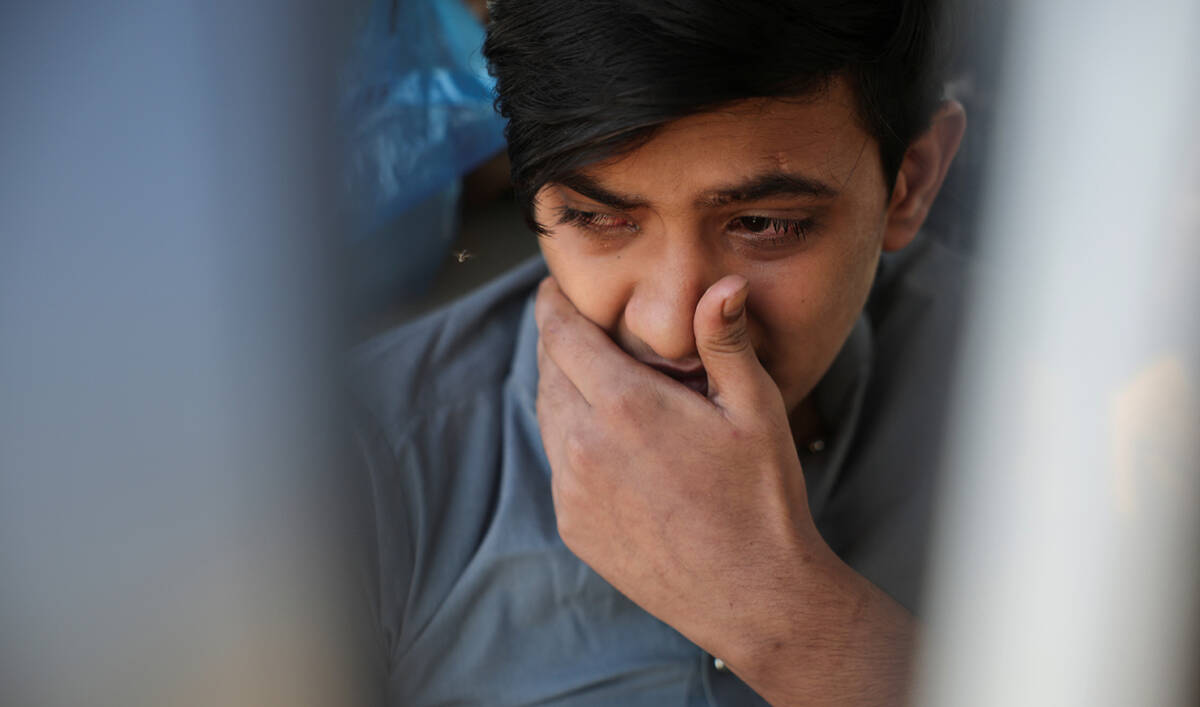KARACHI: Hundreds of passengers flying eastern routes, including Pakistani and Malaysian nationals, were stranded at Bangkok and other airports, travelers and aviation officials said on Wednesday, a week after Pakistan’s airspace was closed in the midst of escalating tensions with neighboring India.
The closure was instated in part because of possible military operations and the consequent risk to commercial traffic.
“Hundreds of Pakistanis, coming from Malaysia, Indonesia and Australia are stuck at Bangkok’s Suvarnabhumi Airport,” Muhammad Sajjad Madni, a Karachi-based trader who returned to Pakistan through a special flight via Qatar on Tuesday morning, said.
Madni said he had to spend a week at the Bangkok airport’s lounge before being flown back, adding that he, along with 200 other passengers, arrived from Singapore to Bangkok on February 26 where the airline refused to fly onward to Karachi.
“The next day, the number grew to 700 when flights came from Malaysia and on February 28 it further increased to 1,100 when flights from Australia landed for transit at Bangkok,” he said.
Madni complained that neither were the passengers provided with a transit visa nor any hotel facilities. “The airline authorities told us that since it was not the airline’s fault, it wouldn’t extend any help. Most of the passengers’ visas had expired so they could not go back. There were passengers traveling to Pakistan to attend funerals,” he said.
Madni said after three days and with the help of the Pakistan embassy in Bangkok, the passengers found access to the airport lounge where food was served and where they could use the Internet facility. “We finally contacted Pakistan’s overseas minister Zulfi Bukhari and after negotiations with the airline, 800 out of the 1,100 passengers, with tickets for Lahore, Karachi, Islamabad and Peshawar airports, were brought back to Karachi airport.”
Bukhari didn’t respond when asked as to how many passengers were still stranded at Bangkok and other airports. Madni, however, said: “Although our journey ended, our miseries didn’t.”
“More than 100 passengers are still waiting for missing luggage, which the airlines’ authorities said will be brought through the next flights,” he said
There are also passengers stranded in Pakistan due to airspace’s closure.
“From 85 Malaysian citizens stranded all over Pakistan since February 27, 41 have returned to the homeland on 2, 3 and 4 March (via Islamabad and Karachi with transit in Abu Dhabi, Doha, Dubai and Jeddah) after the Pakistan airspace was reopened gradually from 2 March,” a statement issued by the Malaysian High Commission in Islamabad read, adding that the remaining 44 Malaysians are expected to leave Pakistan by this weekend.
An aviation official in Karachi confirmed that several Pakistani passengers were stuck abroad whereas 44 Malaysians were also waiting to fly to Kuala Lumpur.
Mujtaba Naig, spokesperson of the Civil Aviation Authority, told Arab News that Pakistan had resumed partial flight operations at four airports on Friday. “Now 11 of 26 airports are opened whereas 15 are still closed for flight operations. According to the fresh NOTAM issued on Wednesday morning, “Pakistan’s airspace will remain closed for all operations till March 7, 2019, time 0800 (1pm Pakistan Standard Time).”
Flights from Pakistan’s major airports, however, will take off for their destinations inside Pakistan and toward the West and north.
Mashood Tajwar, a Pakistan International Airline (PIA) spokesperson, said that flight operations of the national carrier were gradually being restored as well. “We have restarted flight operations from eight local stations whereas all international flights except Bangkok and Kuala Lumpur have also been restored,” Tajwar told Arab News.
Abdul Hasan Qureshi, a Karachi-based aviation expert said that as India had diverted its flight from Pakistan’s airspace toward the sea for onward flights to Qatar — thereby prolonging its traveling distance — Pakistan’s flight operation toward the East was completely stopped as a result.
“With no alternative planned, those who intend to fly from or to Pakistan from Far East and Australia cannot travel whereas the private airlines have also refused to carry passengers till the airspace is opened,” Qureshi said.
“Besides this major effect, the closure of airspace is also incurring Pakistan huge losses, as no airline has flown over Pakistan airspace for its destination since its closure last week. Daily, between 1,000 and 1,200 international flights would use Pakistan’s air pace,” Qureshi told Arab News.
A retired PIA captain, Aamir Kamal, had earlier told Arab News that the CAA “charges approximately $5,000 per hour from airlines using our airspace.”
“All flights from Europe to the Far East and back fly over Pakistan. They are charged by the amount of time they remain in our airspace,” he said.



















